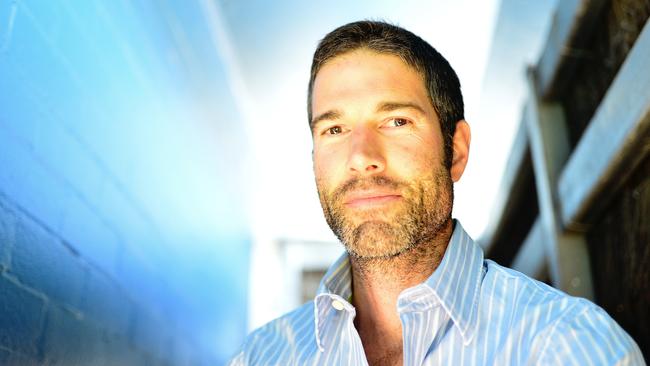The unspoken truth of domestic violence in Australia
WHEN put to the test, demonising the male partner, as required by feminist orthodoxy, doesn’t work in real life. So why is the one person telling the truth being punished, asks Miranda Devine.
Rendezview
Don't miss out on the headlines from Rendezview. Followed categories will be added to My News.
IF you really wanted to reduce domestic violence you would improve relationships between men and women.
If you really wanted to improve those relationships, the last thing you would do is entrench a system where one side was always treated like a victim and one like a perpetrator.
Everyone knows that is not the truth of any marriage or relationship. It takes two to tango. And what is barely mentioned in all the hyperbole about domestic violence is that more than one third of victims are male.
Yet, the self-serving feminist myth that conflict is always entirely the fault of men, with women the virtuous victims has captured the domestic violence industry and corrupted marriage counselling.
No one knows that better than Rob Tiller, a couples counsellor at Relationships Australia for eight years, who was forced to resign in March after posting an article by Bettina Arndt on a private Facebook page, pointing out the statistics on domestic violence show women are perpetrators too.
He also shared the article in a closed group email with a men’s network of fellow counsellors. One of those men, who holds a PhD in gender studies, took screenshots of the conversations and maliciously forwarded them him to his employer.
Tiller says his bosses claimed Arndt’s article “violated” RA’s domestic violence policy which is “historically framed by a feminist analysis of gendered power relations”.
“Saying there’s violence on both sides is a taboo subject,” he says from his home in Perth.
“You have to say men are perpetrators and women are victims. [But] having spent my career observing provocative, aggressive and violent behaviours from both partners, I couldn’t continue denying my own professional experience.”

Tiller is claiming unfair dismissal against RAWA in the Fair Work Commission, although his bosses claim he resigned of his own accord.
He was the only male in his Perth office and the most sought-after counsellor. He has helped hundreds of couples repair their relationships, not to mention protect their children from the lifelong negative effects of family breakdown.
But to be so successful he had to be honest about human nature, and deal with the reality he saw in his work, of women’s role in domestic violence.
“Domestic violence is a serious problem but what I’m seeing is the conversation, culturally, is not representative of what’s been going on in the family home,” he says.
“We’re human beings and we all have a dark side. It hurts the people we care about.
“I’m not saying men don’t act out in the wrong way. I’m not excusing bad behaviour or violence but generally it’s emotional dis-regulation on both sides.
“Two people and their inability to manage conflict effectively so they both have their specific ways of escalating the conflict and someone starts swinging and it gets ugly. At least half the time she throws the first swing …
“We can’t continue sweeping the bad behaviour of women under the rug because that leads to community breakdown”.
Arndt, the clinical psychologist-turned-social commentator whose article caused Tiller so much bother, is now leading a crowd-funding campaign to pay for his legal costs.
She has done more than anyone to try to puncture the myth that domestic violence is a male-only problem.
“Feminist domestic violence policies are rampant in key organisations throughout the country. But 40 years of research shows family violence is two way and they systematically deny that’s the case.”
She and Tiller have since been contacted by men and women complaining of anti-male basis at RA: “People are shocked that counsellors didn’t give their male partners a fair hearing.”
Tiller sees lavishly government-funded anti-domestic violence campaigns which demonise men as dangerously counter-productive.
“If you get a culture saying men are inherently violent, emotionally stupid, not good communicators and they’re internalising it, then their positive sense of self keeps shrinking and when you have a man walking around who doesn’t respect himself he’s more likely to have addiction problems, and not be very good in relationships.”
Tiller considers his speciality as “translating the male perspective to the female and vice versa”. He tries to give both partners a fair hearing, and encourages both the man and the woman to take responsibility for making their relationship work.
While males can be more overtly confrontational, “female behaviour can be a bit more subtle, maybe passive-aggressive, but equally destructive.
“Men and women are equally bad at relating with each other, that’s been my observation.”
Demonising the male partner, as required by feminist orthodoxy, doesn’t work in real life.
Tiller says his counselling sessions are more effective when he calls out both sides for destructive behaviour.
“Generally, she’s positive and I’ve won major street cred with the guy, so he becomes a lot more invested in the process. I’m going to train him to hold his own assertively, not aggressively, and next session I confront him in a therapeutic way and they both build trust in me. It doesn’t take long to get them into a lot better place even if they’ve been entrenching bad habits for decades.
“I’m a pragmatic therapist. I want to get results.”
But getting results isn’t the aim of the domestic violence industry.
If it was, then instead of demonising all boys and men, funding would be concentrated in the violence hot spots of indigenous and welfare communities where generational despair and substance abuse have created a Hobbesian nightmare, where women are bashed in broad daylight, two-year olds are gang raped, and no one bats an eyelid.



